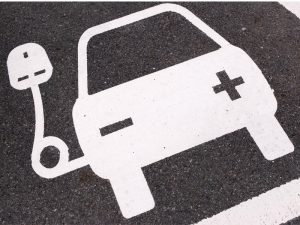ASA upholds complaints about Ecotricity Electric Highway ads
The Advertising Standards Agency (ASA) has Upheld two issues regarding Ecotricity’s advertisements for its Electric Highways charging stations following an in-depth investigation.

The ASA ruled the Ecotricity ads were “misleading”, and must not appear again in the forms complained about.
The Agency received nine complaints about the advertisements; seven complainants challenged whether the claim: “A rapid charge of up to thirty minutes will cost £6, significantly less than the cost of an equivalent petrol or diesel car,” was misleading and could be substantiated.
Three complainants challenged whether the references to free charging for Ecotricity customers were misleading, because they understood that Ecotricity customers were limited to 52 free charges a year.
Ecotricity Group Ltd stated that the claim about cost-per-charge was based on data on the three most popular models of electric car in the UK, as published by their manufacturers. This included information about the ability of the various cars to charge within 30 minutes and their battery capacity. The company also stated that it had provided an explanation of how it had calculated the cost-per-mile for each vehicle based on this data.
The Average cost-per-mile figures for both petrol and diesel vehicles in the UK were calculated based on figures from government sources. Ecotricity stated that the Electric Highway’s rapid charge points were located at motorway service stations, where fuel prices tended to be higher. Therefore, it had chosen the more conservative, average fuel price figure in order to “avoid bias in favour of electric vehicles”.
Addressing the issue regarding ‘free’ charging, the company said that on 7 July 2016 it had announced that it would begin charging for use of the Electric Highway charging points, and it also announced that use would remain free for Ecotricity customers.
Five days later, it introduced a ‘fair use policy’ for Ecotricity customers, limiting them to 52 free charges per year. Ecotricity stated that the fair use policy was put in place to prevent the abuse of the service by the 5% of customers who used it excessively. According to company data, 94.2% of customers would still be able to charge for free even with the fair use policy. Ecotricity said that all subsequent communications had made clear that a fair use policy applied.
In its report, the ASA noted that although the claim referred to “an equivalent petrol or diesel car”, the wording was vague and there was no further information on what Ecotricity considered to be an “equivalent” vehicle. The body ruled that it therefore did not serve to clarify the basis of the comparison.
It also noted that there is a large range of electric cars available in the UK, and there was not sufficient evidence to demonstrate that the performance of the selected vehicles was representative of all electric cars used by UK consumers, as implied by the ad.
The ASA also questioned the calculations used to determine that the cost of a charge is cheaper than the cost of a equivalent conventionally-fuelled vehicle. It ruled that the ad failed to make the basis of the comparison clear to consumers, and that, in the absence of sufficient qualification, consumers would understand that they were comparing the cost of running an electric vehicle against that of all petrol and diesel vehicles in the UK market. As it did not consider that the implied claim had been adequately substantiated, ASA concluded the ad was misleading.
Regarding the second complaint, the ASA noted that while the ad provided consumers with a means of accessing the qualifying information, it was located at some distance from the initial claim. The body also ruled that the limitation on the number of charges that consumers could obtain without paying contradicted the claim that the charging was free for Ecotricity energy customers, and therefore concluded that the ad was misleading.
Following the investigation, the ads must not appear again in the forms complained about, and Ecotricity Group Ltd has been advised to ensure that it does not “misleadingly” omit the basis for comparative claims and to make significant limitations clear to customers from the outset.
The full report can be viewed here.





